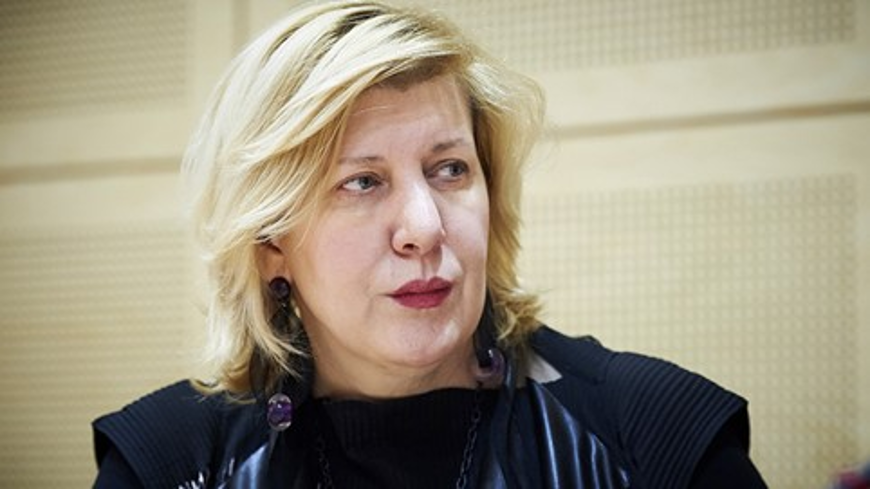On 21 June 2022, in a letter addressed to the Hungarian Minister of the Interior, the Council of Europe Commissioner for Human Rights, Dunja Mijatović, expressed her appreciation for the country’s open border policy for those fleeing Ukraine but raised concerns about the longer-term protection perspective of third country nationals and stateless persons, who are excluded from the temporary protection scheme and have no possibility to apply for asylum in the country.
So far, third country nationals and stateless persons have been issued with humanitarian residence permits for 30 days, which are usually extendable but carry no benefits, while the Hungarian border police continues to report daily removals to Serbia of persons coming from war-torn countries such as Syria, Afghanistan, or Iraq. “The sustained rhetoric by government officials of differentiating Ukrainians as ‘real refugees’ and portraying those fleeing atrocities and war elsewhere as economic migrants is problematic and contradictory to the core principle that human rights exist to protect everyone, in the same way, whatever their national or ethnic origin, colour, or belief,” the Commissioner wrote.
The Commissioner urged the Minister to pursue the establishment of an asylum system in line with Hungary’s international protection obligations, for the benefit of those fleeing Ukraine who do not fall under the temporary protection scheme and for everyone else who seeks the fair and thorough assessment of their eligibility for asylum in Hungary.
On 13 July 2022, in a letter addressed to the Spanish Minister of the Interior, Commissioner Mijatović urged the authorities to conduct an independent, full and effective investigation into the events leading to the deaths of more than 20 migrants who attempted to cross the fence between Nador, in Morocco, and Melilla on 24 June 2022.
“Such an investigation should also look at the wider circumstances and policies related to Spain’s migration co-operation with Morocco, with a view to preventing future tragedies and ensuring that any policies in place do not violate human rights standards,” said the Commissioner.
Stressing that border control measures, including in co-operation with other states, must not directly or indirectly contribute to human rights violations, the Commissioner requested information from the Spanish government concerning the steps it intends to take to ensure that co-operation in the field of migration prioritises human rights in full compliance with Spain’s international obligations.
Read the reply of the Minister of the Interior of Spain
On 29 July 2022, ahead of the World Day against Trafficking in Persons, the Council of Europe Commissioner for Human Rights, Dunja Mijatović, issued the following statement:
“We should all remember that Europe is not immune to human trafficking and that certain groups, including women, children and people on the move due to wars or economic hardship, are particularly vulnerable to this phenomenon.
In my Memorandum on the human rights consequences of the war in Ukraine, I warn about the heightened risks of human trafficking resulting from the massive internal and external displacement of people, mainly women and children, fleeing the conflict. Council of Europe member states should be particularly vigilant and take all necessary measures to prevent and combat human trafficking in this context, in line with the recent recommendations by the Council of Europe’s Group of Experts on Action against Trafficking in Human Beings (GRETA).
The COVID-19 pandemic and its deleterious consequences on all those living in, or at risk of living in poverty is another reason to be concerned that more people will fall prey to human trafficking and exploitation if no preventive measures are taken to safeguard and reinforce social rights, especially in the fields of education and labour. As recently stressed by GRETA, the COVID-19 pandemic has made children even more vulnerable to trafficking, including online exploitation.
I have also highlighted the clear link between border and migration management and the risk of human trafficking. The current lack of safe and legal routes makes migrants more vulnerable to becoming victims of trafficking. This risk is particularly acute for those who use dangerous land or sea routes to Europe in the hope of finding protection from persecution and better living conditions. In this context, it is crucial that member states expand safe and legal migration routes to reduce the risks of human trafficking.
The World Day against Trafficking in Persons is a moment to pay tribute to all victims who have suffered from this serious human rights violation, sometimes at the cost of their lives. This is important but not enough. Trafficking in human beings can take on many forms, but Council of Europe member states have at their disposal a series of comprehensive tools, applicable to all forms of exploitation, to guide them in combating trafficking. All 46 member states are bound by the Council of Europe Convention on Action against Trafficking in Human Beings and Article 4 of the European Convention on Human Rights as interpreted by the European Court of Human Rights. It is time to make full use of these instruments to prevent human trafficking, protect victims and prosecute perpetrators.”



